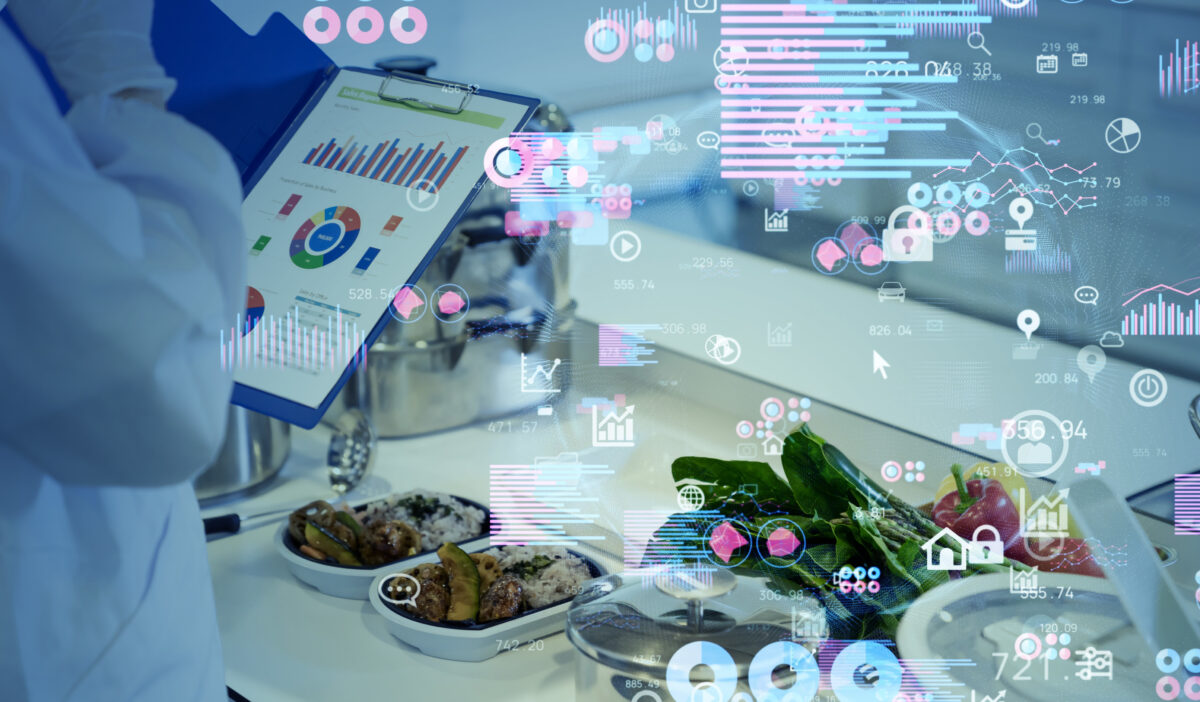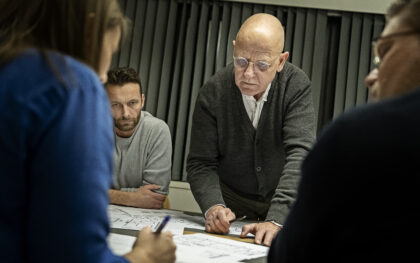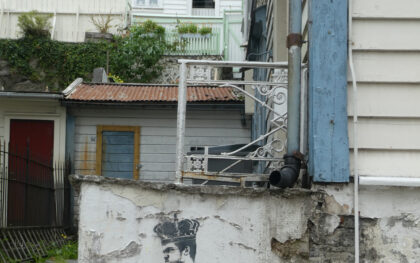Sustainable Food Production and Processing – online course

Get an understanding of the key concepts in sustainable food processing based on a systemic approach to the challenge of the transition to a circular bio-economy.
Through the course, you will engage in discussions of supply chain and logistics, process technologies, safety, economics, quality, and consumer acceptance in relation to the development of sustainable and safe food production.
During the course, you will be working with:
- The concept of sustainable food processing and preservation
- Prevailing sustainability definitions and UN SDGs
- Processing technologies used in the food industry
- Current processing in four selected value chains with a focus on raw materials, water and energy consumption, and economy
- Alternative sustainable raw materials, processes, and preservation technologies
- Digitalization in food processing and preservation with a focus on the use of sensors, data and modelling
- Life cycle assessment and life cycle cost analysis
- Market conditions and economic incentives for sustainable food processing
Profile of participants
The course is relevant for employees who work in the private or public food and feed sectors, who are interested in improving the sustainability of food and feed production.
Learning Outcomes
Your outcome
Once you have completed the course, you will be able to:
- Understand and explain the concept of sustainable food processing and preservation.
- Describe criteria for sustainable food processing.
- Analyse the impact of current processing in relation to proper utilization of raw materials, water and energy consumption and economy.
- Discuss potential alternative sustainable technologies.
- Evaluate the potential use of digitalization in food processing and preservation.
- Discuss possibilities for improving the sustainability of current food production systems while maintaining chemical and microbial safety and analysing its impact.
- Explain the importance of assessing environmental and social impacts of food processing in a full life cycle perspective.
- Evaluate, discuss and report an analysis of the production of a specific food product through the whole value chain with the aim of improving the sustainability of the food product
Outcome for your organization
Your organization gets an employee who will be able to:
- Analyse the company’s current food processing practice in relation to sustainability.
- Provide suggestions for the implementation of alternative sustainable processing and preservation solutions, which will improve the sustainability of the company’s food product portfolio.
- Provide suggestions for increasing the use of digitalization in food processing with the aim of also improving sustainability.
Admission requirements
The course is part of the Master’s programme Master of Sustainable and Safe Food Production.
You can follow the course as part of the Master’s programme or you can follow it as a single course.
Part of the Master’s programme
If you wish to follow the course as part of the Master of Sustainable and Safe Food Production, please go to the Master’s programme page and sign up for the Master’s programme.
Single course
If you wish to follow this course as a single course, please sign up by clicking the button ‘Add to basket’ in the top of the page. When you click ‘Proceed to checkout’ you can also attach your documentation to apply for admission if you are not admitted yet. You will not be charged for any master courses until you know if your application has been approved.
Admission
To be admitted to this course, you must:
- have achieved a relevant medium-cycle education (a professional bachelor’s degree or the like) or a long-cycle higher education programme
- have a minimum of two years of work experience in the food science and technology field
Furthermore, you must have a solid foundation in the natural sciences (biology, chemistry, mathematics) as well as an understanding of technical processes in food production lines.
Recommended prerequisites
We recommend that you have basic knowledge in biology and chemistry. Furthermore, it is recommended that you have experience from the feed or food industry or public sector.
Education sessions and exam
Education session
The course is taught online, the language of instruction is English.
The education sessions consist of e-lectures, Q&A sessions, assignments, casework and a final report.
The e-lectures are available online which means that you can watch them whenever from wherever.
Furthermore, you are offered weekly live Q&A sessions to get in dialogue with the course lecturer and fellow participants.
Course material will be provided during the course (selected chapters from textbooks, scientific articles, popular science articles, newspaper article, reference webpages….).
The course is offered in the spring in uneven years (2023, 2025 etc.)
Exam
The exam consists of an oral presentation of your final report. The reports counts for 50% of the grade and the oral presentation counts for the remaining 50% of the grade.
Registration
| Duration | 13 weeks |
|---|---|
| Place | Online |
| ECTS | 10 |
| Price |
20.000,00 DKK |
|---|

Questions?
Contact Charlotte Jacobsen
Professor
Phone: (+45) 23 27 90 75
Email: chja@food.dtu.dk
Related educations
-
 Online kursus
Master
Dansk
5 ECTS
Online kursus
Master
Dansk
5 ECTS
Ledelse af Bæredygtigt Byggeri 1 – Projektet
- Start
- 4 September 2024
- Duration
- 6 uger
- Price
- 16.000,00 DKK
-
 Master
English
60 ECTS
Master
English
60 ECTS
Master of Sustainable and Safe Food Production
- Price
- 125.000,00 DKK
-
 Online kursus
Master
Dansk
5 ECTS
Online kursus
Master
Dansk
5 ECTS
Digitale Værktøjer til Bæredygtigt Byggeri
- Start
- November 2024
- Duration
- 6 uger
- Price
- 16.000,00 DKK
-
 Kursus
Master
Dansk
5 ECTS
Kursus
Master
Dansk
5 ECTS
Bæredygtighed som begreb og forståelsesramme
- Start
- February 2025
- Duration
- 6 uger
- Price
- 16.000,00 DKK
For companies
Are you looking to educate several employees with a course or a degree?
Mail us at learnforlife@dtu.dk
